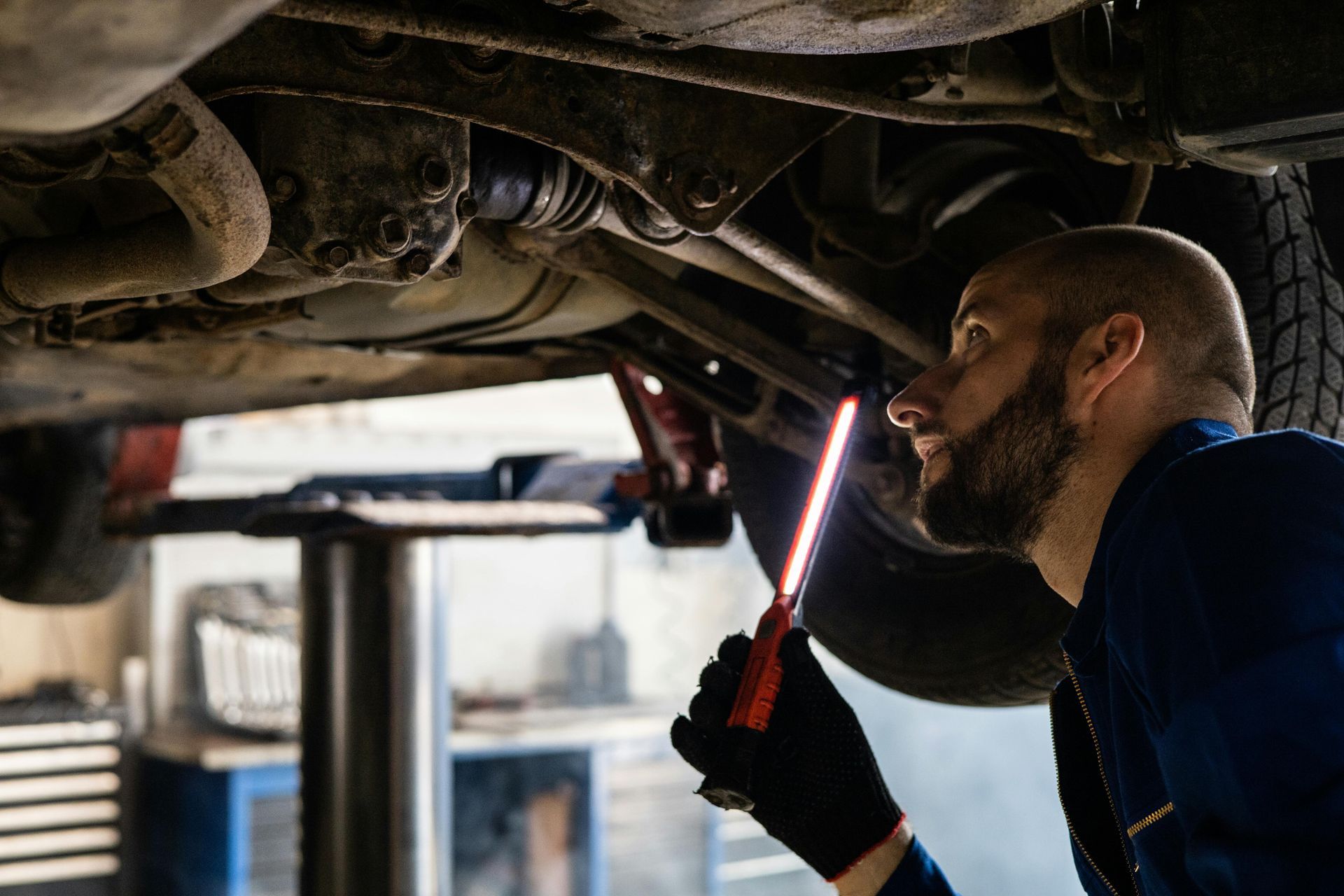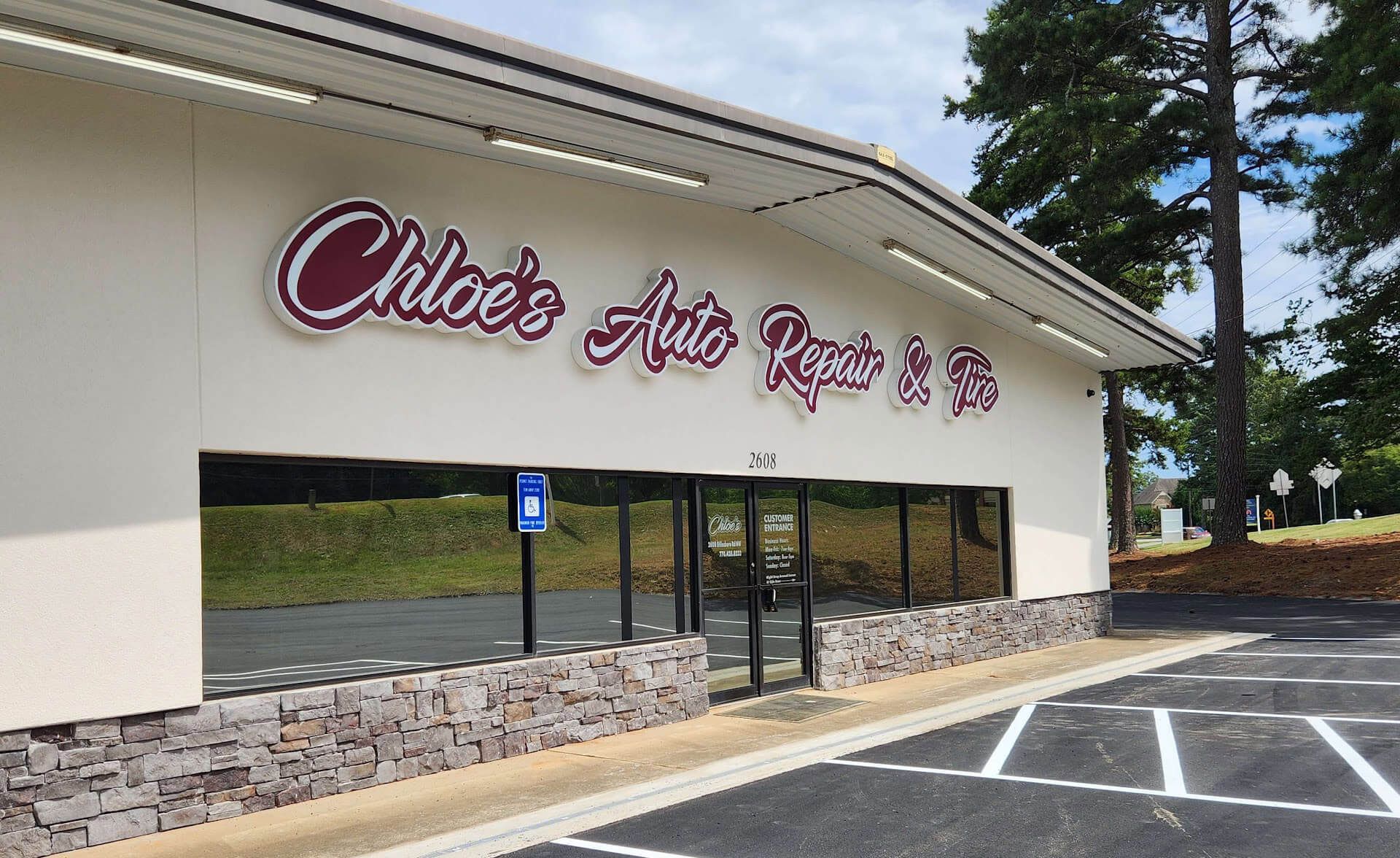By Victor Stewart
•
April 2, 2025
Wheel alignment is an essential yet often overlooked aspect of vehicle maintenance. It's easy to focus on more visible issues like oil changes, tire rotations, or brake pads, but the alignment of your vehicle’s wheels plays a critical role in the overall performance, safety, and longevity of your car. When your wheels are properly aligned, your vehicle operates efficiently, reduces unnecessary wear, and ensures a smooth and safe driving experience. Let’s explore the importance of wheel alignment for your vehicle’s health in greater detail, from its impact on tire longevity to fuel efficiency, handling, and safety. What is Wheel Alignment? Wheel alignment refers to the adjustment of the angles of the wheels so that they are set to the vehicle manufacturer’s specifications. Proper alignment involves adjusting the suspension components rather than the wheels or tires themselves. The suspension system connects the vehicle to the wheels, and these adjustments can ensure that the wheels are in the optimal position relative to the vehicle's frame. The three primary angles involved in wheel alignment are: Camber: This refers to the tilt of the wheels in relation to the vertical axis of the vehicle. If the top of the wheel tilts inward, it’s called negative camber, while outward tilt is known as positive camber. Incorrect camber can cause uneven tire wear, affecting handling and performance. Toe: This refers to the angle at which the tires point inward or outward when viewed from above. If the wheels point toward each other, it's called "toe-in," and if they point away, it's known as "toe-out." Improper toe settings can lead to excessive tire wear and poor handling. Caster: This is the angle of the steering axis when viewed from the side of the vehicle. A positive caster helps maintain stability at high speeds, while a negative caster can make the vehicle feel unstable or “wandering.” Regularly checking and adjusting these angles is crucial for your vehicle’s health. Now let’s dive deeper into the specific reasons why wheel alignment is so important. 1. Extended Tire Life One of the most noticeable effects of improper wheel alignment is accelerated tire wear. When your wheels are out of alignment, your tires can wear unevenly. For example, if the toe is set incorrectly, it can cause the inside or outside edges of the tires to wear down faster than the center. Similarly, misaligned camber angles may lead to excessive wear on one side of the tire, rendering it less effective and potentially unsafe much sooner than it should be. By maintaining proper wheel alignment, your tires will wear evenly and last longer, ultimately saving you money on tire replacements. In addition, properly aligned tires promote better traction, reducing the likelihood of slipping or hydroplaning during wet conditions. 2. Improved Fuel Efficiency Did you know that improper wheel alignment can lead to decreased fuel efficiency? When your wheels are out of alignment, your tires can create resistance against the road. This extra friction forces the engine to work harder to propel the vehicle forward, leading to higher fuel consumption. The misalignment causes the vehicle to drag, which in turn reduces gas mileage. By aligning your wheels, you reduce this unnecessary friction, allowing your vehicle to move more smoothly, consume less fuel, and save you money at the gas pump. It’s a simple adjustment that can have long-term economic benefits and environmental advantages. 3. Enhanced Vehicle Handling Proper wheel alignment also contributes to the handling and overall driving experience of your vehicle. When the wheels are not aligned, it can affect the vehicle’s ability to drive straight. Misalignment might cause the car to pull to one side or make the steering wheel feel off-center or unresponsive. This can make driving uncomfortable and even unsafe, particularly at higher speeds or when making turns. Correct wheel alignment ensures that the steering wheel responds as expected, and the vehicle drives straight and true. This stability is crucial for your safety, especially in emergency situations that require quick and precise steering inputs. Whether you're navigating city streets, cruising on highways, or taking tight turns, proper alignment makes handling much more predictable and comfortable. 4. Safety Benefits A vehicle with misaligned wheels can be dangerous, especially if the alignment issues lead to uneven braking or handling problems. For example, a misaligned wheel can make the vehicle pull to one side during braking, which may result in longer stopping distances or difficulty maintaining control of the car, especially in hazardous road conditions. This can significantly increase the risk of accidents, particularly when driving at high speeds or in adverse weather. Proper wheel alignment ensures that your car handles predictably and brakes evenly. This stability can help prevent accidents and ensure that your vehicle operates safely under various conditions. It’s particularly important for those who frequently drive in challenging conditions, such as on wet roads, icy streets, or uneven terrains. 5. Less Strain on Suspension Components When your vehicle’s wheels are misaligned, the suspension system bears the extra load caused by the improper angles of the tires. This additional stress can cause the suspension components, such as shocks and struts, to wear out more quickly, leading to costly repairs. Over time, the vehicle may begin to experience issues such as poor ride quality, excessive vibration, and reduced handling capabilities. Regular wheel alignment checks and adjustments can help prevent undue stress on your vehicle's suspension system, prolonging its life and ensuring that it functions as intended. This not only saves money on repairs but also helps maintain a smooth, comfortable ride for you and your passengers. 6. Maintaining Your Vehicle’s Value Properly maintaining your vehicle’s health, including its alignment, helps preserve its value. Potential buyers are often concerned with the condition of the vehicle’s tires, suspension, and overall driving performance. A car that has a history of regular wheel alignments will likely appeal to buyers, as it suggests that the vehicle has been well-maintained and cared for. Conversely, a vehicle with uneven tire wear or poor handling might be less attractive to a buyer, even if the vehicle is otherwise in good condition. By keeping your vehicle aligned, you’re not just taking care of its performance, but also protecting its resale or trade-in value. 7. Signs That Your Vehicle Needs Wheel Alignment If you’re unsure whether your vehicle needs a wheel alignment, there are several warning signs to look out for: Uneven or excessive tire wear: Check your tires for wear patterns. If one side is more worn than the other, it's a sign that your wheels may be out of alignment. Pulling to one side: If your vehicle drifts to the left or right even when you’re driving on a straight, level road, your alignment might be off. Steering wheel vibration or misalignment: If your steering wheel shakes or feels off-center, it's time to have your wheel alignment checked. Squealing tires: If your tires make squealing noises, it could be due to improper alignment or excessive friction from misaligned wheels. Conclusion Wheel alignment is a critical component of your vehicle's overall health and well-being. It affects tire longevity, fuel efficiency, handling, safety, and even the lifespan of your suspension system. Regular alignment checks can prevent costly repairs, reduce fuel consumption, improve driving comfort, and ensure that your car remains in optimal condition. To keep your vehicle performing at its best, it’s advisable to have your wheel alignment checked periodically, especially if you notice any of the warning signs mentioned above. Most experts recommend checking your alignment at least once a year or whenever you replace your tires. By making wheel alignment a priority, you’ll not only extend the life of your vehicle but also ensure a safer, more comfortable driving experience for you and your passengers.







